Review – Wolf Man (2025)
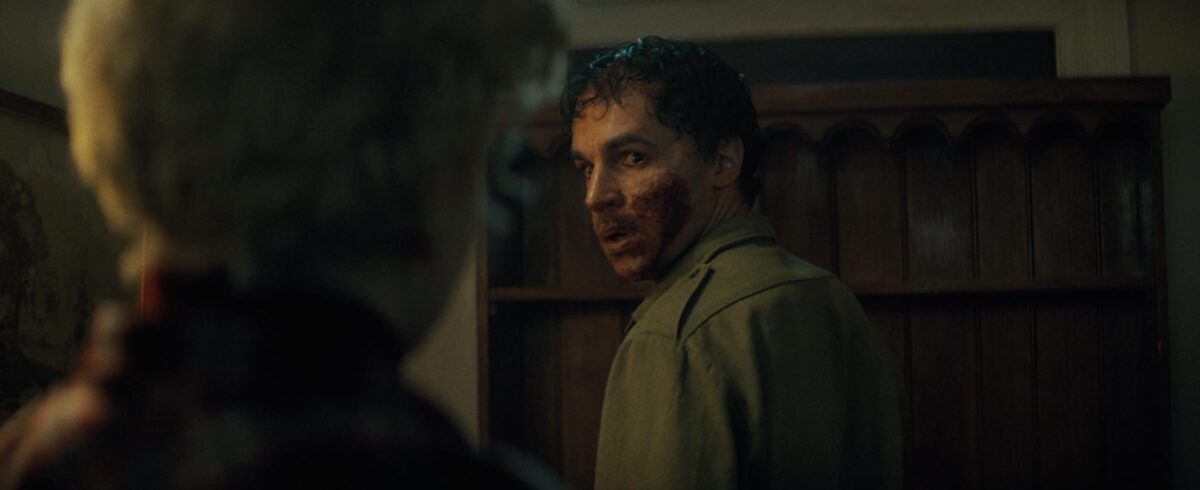
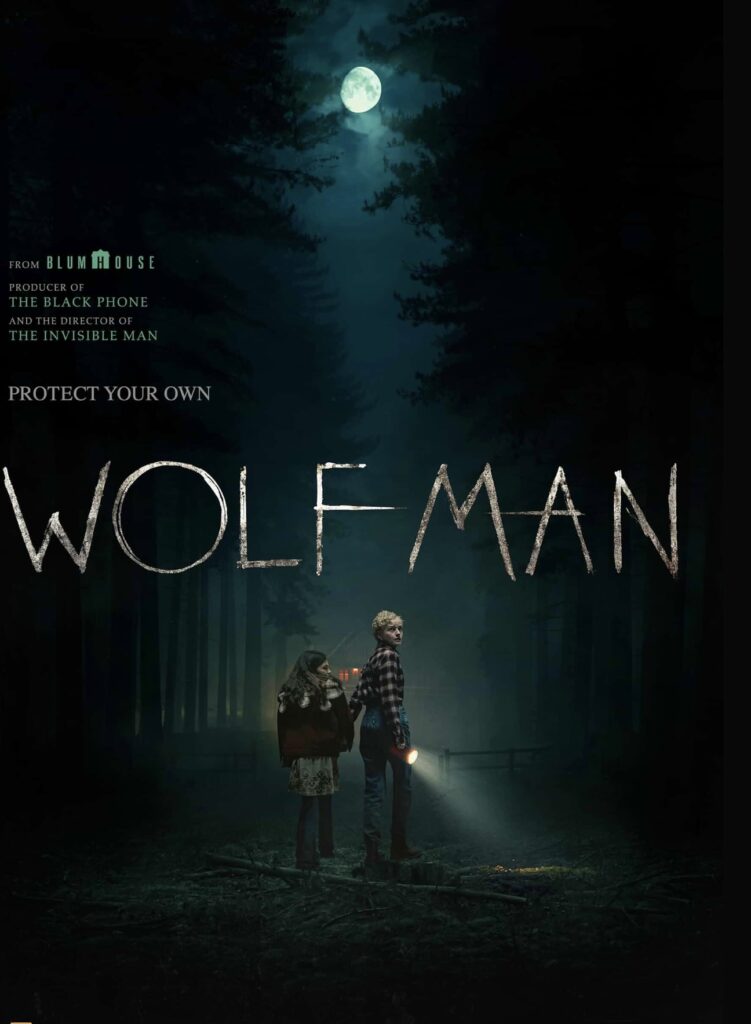
Leigh Whannell is somewhat contemporary horror royalty, belonging to projects such as Saw (2004), Dead Silence (2007), Insidious (2010), Insidious: Chapter 2 (2013), Insidious: Chapter 3 (2015), Upgrade (2018), The Invisible Man (2020) and now Wolf Man (2025). Regardless of opinion, Whannell is a seasoned horror creator, but is his extensive experience enough to make the long-awaited Wolf Man a film that has a decent bite?
Wolf Man follows Blake (Christopher Abbott), a family man who along with his wife Charlotte (Julia Garner) and daughter Ginger (Matilda Firth) travel to the remote wilderness of Oregan from the bustling San Francisco after Grady (Sam Jaeger) Blake’s estranged father dies, leaving his estate to his only son. In hopes of repairing their fractious marriage, the family head to the “Beaver State”, however, en route they are attacked by an unseen creature, leaving Blake with a gushing, troubling scratch by the howling beast.
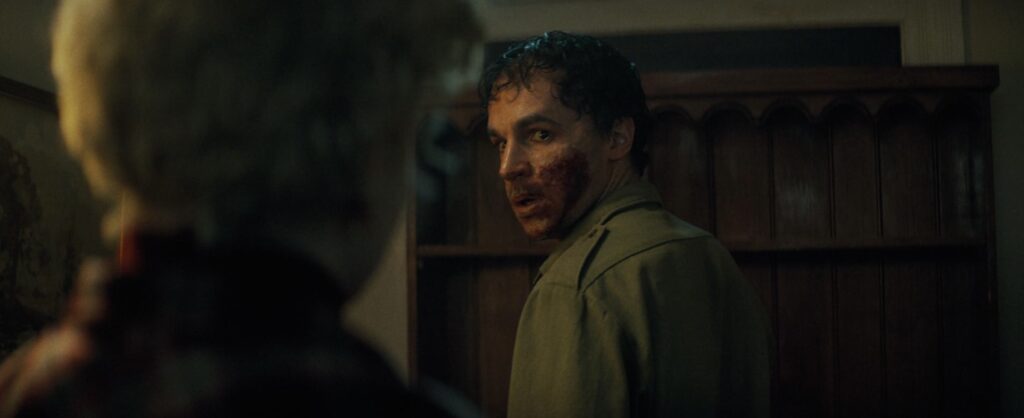
Werewolves are colloquially known as furred giants, gnarling their prey like a rabid frothing dog and unleashing havoc at the sheer warning of a full moon. Wolf Man internalises the essence of the unsightly brutes and spits out a powerful reengineering of the beloved movie creature that is tonally deep and seething with a whole new lease of emotionality. Wolf Man is just as much of a family drama as it is a creature feature, which should be conflicting and over complicated, except Whannell manages to tiptoe the two thematic halves and creates a film that gives equal credence to both components.
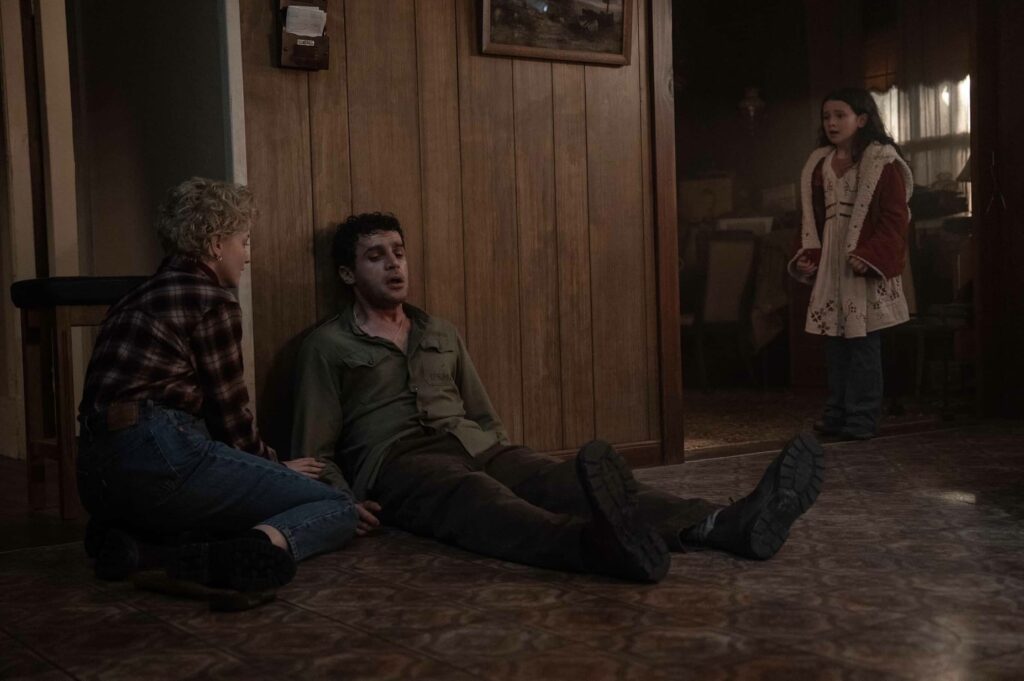
Firstly, the transformation element (i.e. the backbone of any good werewolf film) is unique and unexpected, but in the most pleasant of ways as we see Blake go from an unextraordinary man to a strange species. A monster whose personhood experiences a metamorphoses just as much as his appearance.
During the promotional tour, Whannell has been open about the film’s potentially controversial lyncathrophic transformation, with the director speculating that the Wolf Man’s appearance will not be traditional, opting for similar approach to David Cronenberg’s The Fly (1986), where the meanings behind the ‘changing’ will take presidency over the gore-factor. That being said, the film does still include the frequent nasty body horror that one would expect from a werewolf feature.
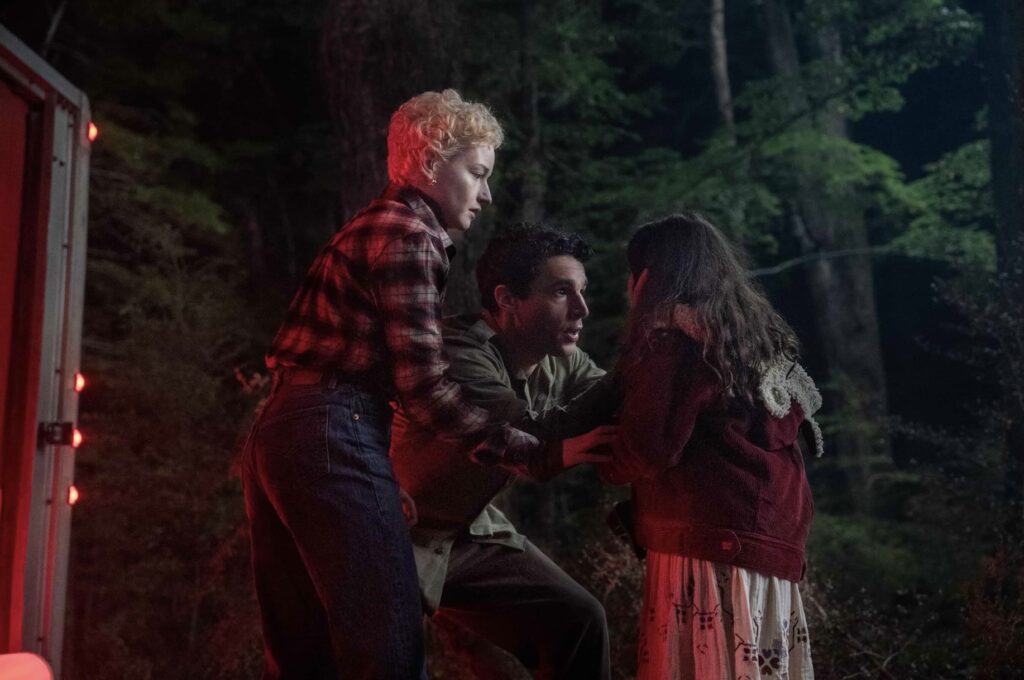
As such, the few sequences of gross-out visuals are met with an even more haunting feeling manifested by the strict, continuous facets of tragedy that are woven in and out of this complex horror. The film delves into Blake’s relationship with his father and Blake’s own fears and anxieties about his capabilities to be a better patriarchal figure in Ginger’s life.
Amplifying the narrative’s emotive trepidations and woes is Blake’s transformation. Throughout his change, he not only sprouts hairs and gains speed, his core capacities and senses also begin to fragment into that of lycanthropy. No longer can he clearly hear exactly as he once could, with his wife and daughter’s speech becoming strange muttering. Every portion of his sensibility is lost. He is now forever haunted and lost.
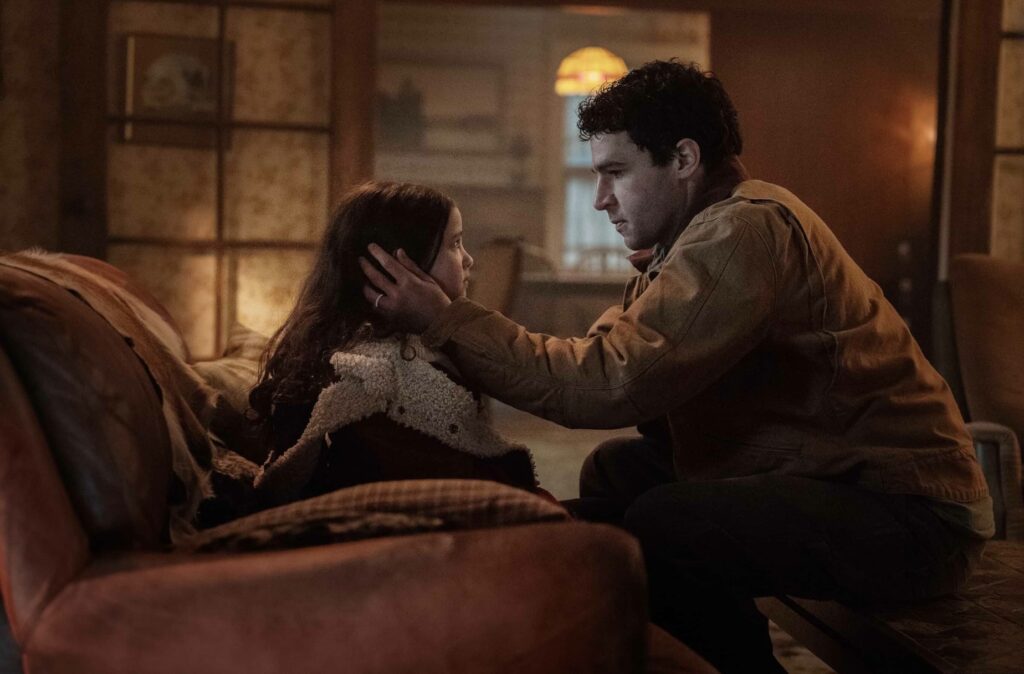
Wolf Man is entrenched in a layer of darkness that aims to move, which in a cruel twist of fate makes the film not as traditionally ‘scary’ as it could be. Not every horror film has to frighten, just as not every horror has to be a metaphorical allegory. On the basis of pure fear factor, the kind that will linger and cause the worst kind of nightmares, Wolf Man is somewhat toothless. Nevertheless, audiences should stay for the melancholic portrayal of man versus beast that aims to unravel the psyche more than it does shudder in sheer horror.
Want more top horror lists and reviews? Check out our blog here..


